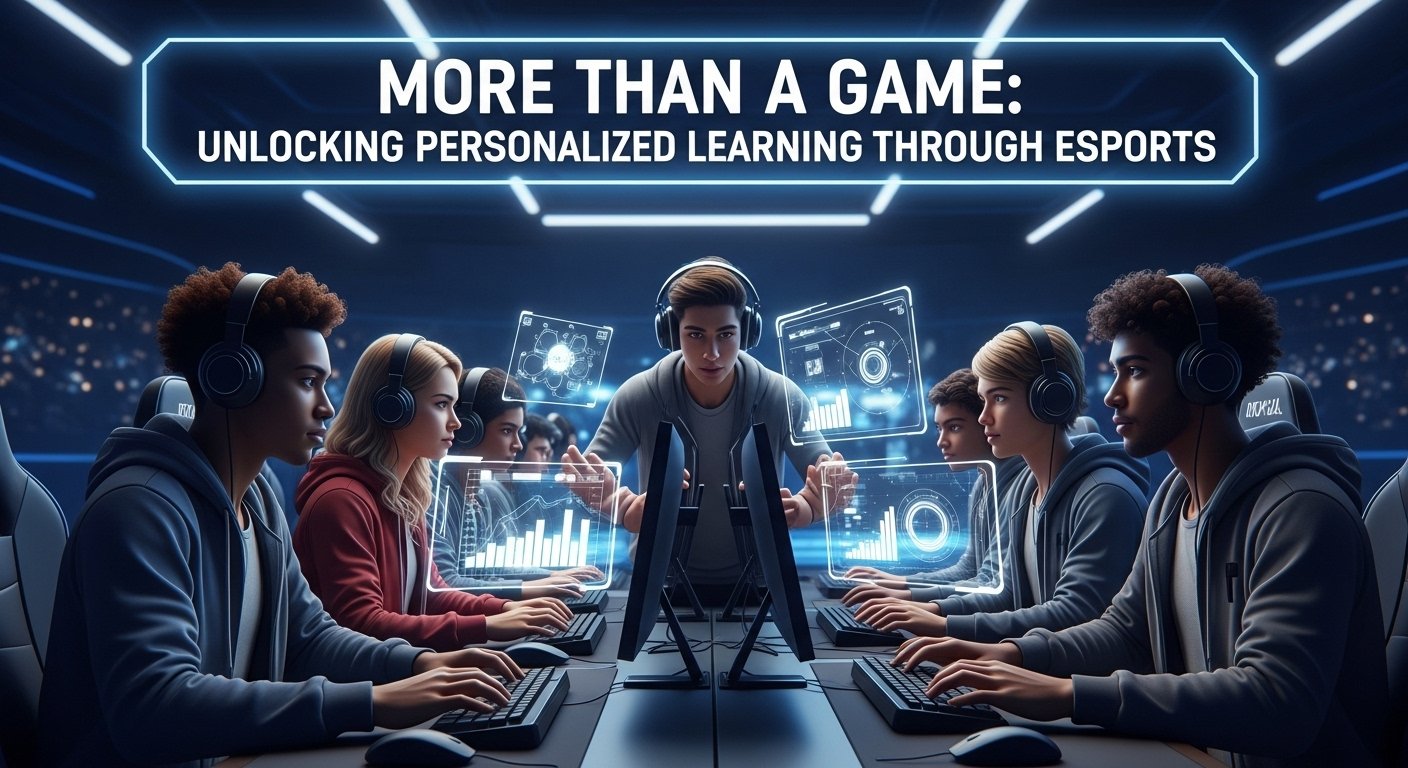More Than a Game: How Esports in Schools is Unlocking Personalized Learning
Picture this: a classroom after the final bell. It’s not quiet. In fact, it’s buzzing with an electric energy that you’d normally associate with a championship football match. A team of students is huddled together, headsets on, intently focused on their screens. One student is calmly calling out strategic plays, another is analysing a stream of on-screen data in real-time, and a third is encouraging a teammate after a missed opportunity. This isn’t just kids playing video games. This is a scholastic esports team, and it’s one of the most powerful and exciting frontiers of Personalized Learning in education today.
As an educator and tech enthusiast, I’ve spent years exploring how we can make learning more engaging and effective. For a long time, video games were seen by many in education as the enemy—a distraction from “real” learning. But as we stand here in 2025, that outdated stereotype has been completely shattered. Schools across the US and UK are embracing esports not just as a popular club, but as a legitimate educational ecosystem. Why? Because competitive gaming, when structured correctly, is a masterclass in the very skills we want our students to develop: critical thinking, collaboration, resilience, and, most importantly, a passion for learning. It is a powerful, organic form of Personalized Learning that meets students where they are and engages them on their own terms.
AI Science of Matter: Atoms and Elements
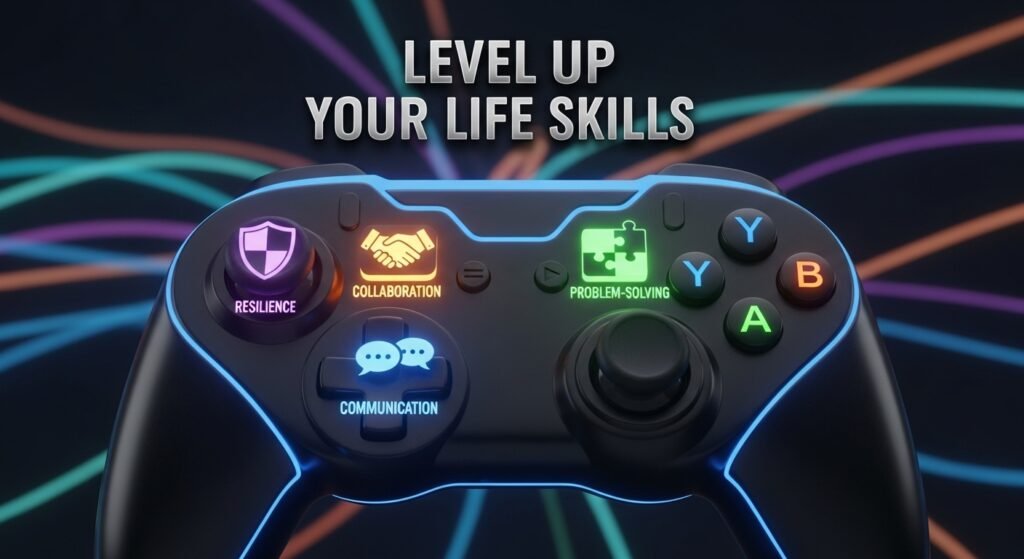
Redefining the “Student Athlete” in the Digital Age
The shift in perception around esports has been dramatic and swift. What was once a niche hobby is now a global phenomenon with professional leagues, university scholarships, and a massive, engaged audience. Educational institutions have taken note. Organisations like the National Association of Collegiate Esports (NACE) now boast hundreds of member colleges and universities offering varsity esports programs.
But the real story isn’t just about the path to pro. The true educational value of scholastic esports lies in its incredible complexity. A competitive match in a game like League of Legends or Valorant is a dizzying dance of strategy, resource management, and split-second decision-making. Success isn’t about having the fastest reflexes; it’s about out-thinking your opponent. This cognitive-heavy nature makes it a perfect environment for a student-driven, Personalized Learning experience.
The Traditional Sports Team vs. The Esports Team: A New Playing Field
While both traditional sports and esports teach valuable lessons like discipline and teamwork, their core mechanics and learning environments offer different opportunities. Esports, in particular, is uniquely suited to fostering 21st-century skills.
| Feature | Traditional Sports Team | Esports Team |
| Primary Skill Focus | Physical prowess, motor skills, spatial awareness. | Cognitive skills, critical thinking, rapid information processing. |
| Strategy & Pacing | Often coach-led, with set plays and a top-down strategic approach. | Player-driven, with real-time, peer-to-peer strategy adaptation. |
| Feedback Loop | Delayed; coach’s feedback after the play or during a timeout. | Instantaneous; every action has an immediate, data-rich consequence. |
| Roles | Generally fixed (e.g., quarterback, goalie). | Fluid and often context-dependent; players must adapt their roles on the fly. |
| Accessibility | Limited by physical ability, school resources for equipment/facilities. | Highly accessible; can connect students of all physical abilities and backgrounds. |
AI Science of Matter: Atoms and Elements
This comparison highlights how the fluid, data-rich, and cognitively demanding nature of esports creates a fertile ground for Personalized Learning.
How Esports Drives Engagement and Personalized Learning
So, how does this all work in practice? Esports isn’t just fun; it’s a sophisticated learning system that organically differentiates instruction and allows students to carve out their own paths to success.
Personalized Pacing and the Pursuit of Mastery
In a traditional classroom, everyone moves at the same pace. In esports, that’s impossible. A player simply cannot succeed without mastering a series of specific, incremental skills.
- The Skill Ladder: In a game like Rocket League, a new player might first focus on simply hitting the ball. Then, they learn to control aerial shots. After that, they might practice complex manoeuvres like air dribbles. This is mastery-based learning in its purest form. The player is intrinsically motivated to practice a skill until it’s perfect because they see its direct application to success. This is a core concept of Personalized Learning.
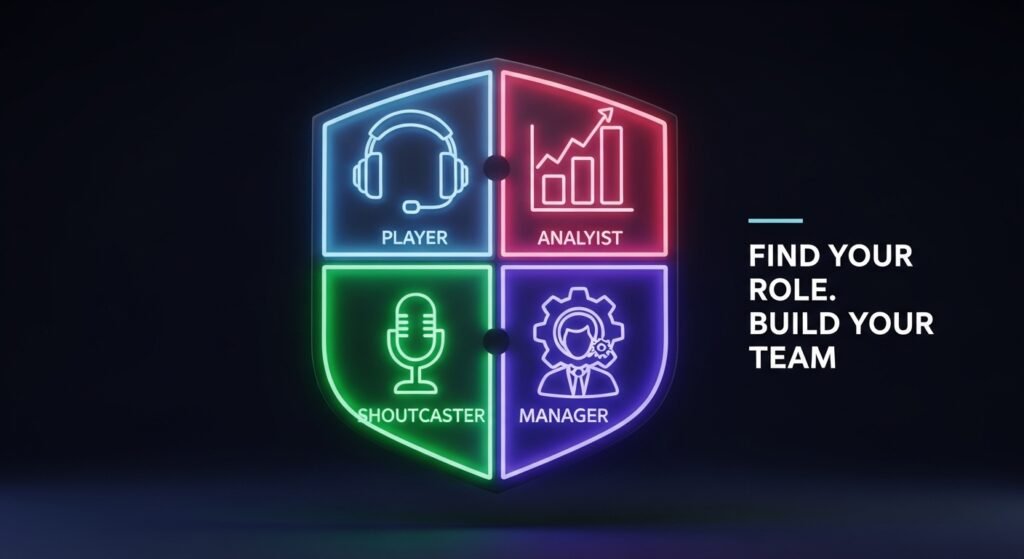
Diverse Roles for a Diverse Team of Talents
This is where, as an educator, I get most excited. A successful esports program is a microcosm of a modern creative or tech company, with a huge variety of roles that extend far beyond the players themselves. This creates a space for every type of student to find their niche.
- The Data Analyst: The student who loves numbers but finds traditional math class dry can become the team’s analyst. They can use spreadsheets and analytics software to track in-game statistics, identify opponent tendencies, and present data-driven strategic recommendations to the team.
- The “Shoutcaster” and Content Creator: The charismatic, well-spoken student can become the voice of the team, providing play-by-play commentary for matches streamed on platforms like Twitch or YouTube. This builds incredible skills in public speaking, communication, and digital media production.
- The Team Manager: The organised, responsible student can take on the role of team manager, handling scheduling, communicating with the league, and ensuring the team runs smoothly. This is real-world project management experience.
- The Graphic Designer: The artistic student can design the team’s logo, create social media graphics, and build the team’s brand identity.
This ecosystem model is Personalized Learning at its best. It allows students to connect their personal passions—whether it’s data, art, or public speaking—to a collaborative, high-energy team environment.
Applied Scientific Thinking: A Practical Framework for Real-World Problem-Solving
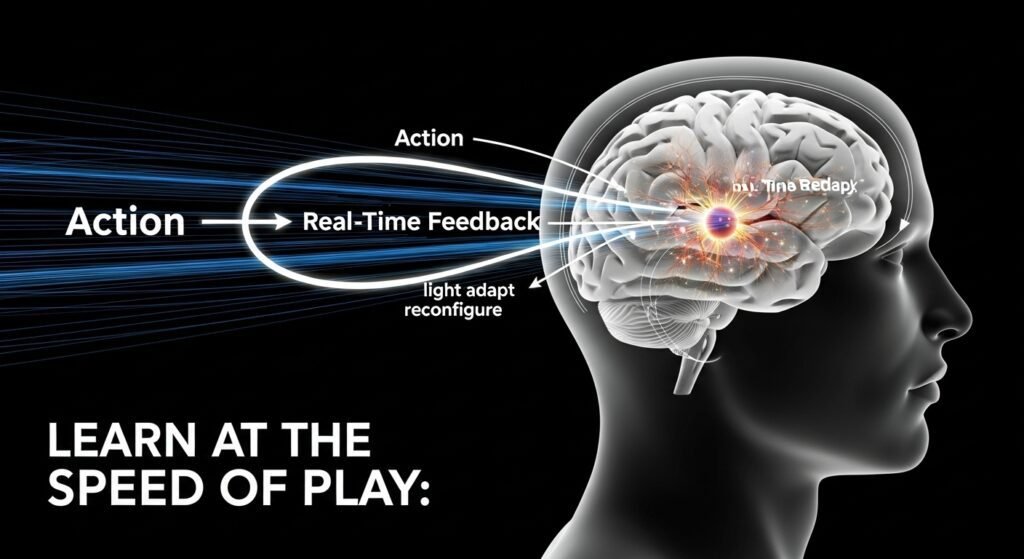
The Power of the Instant Feedback Loop
In most school projects, the feedback loop is slow. You turn in an essay, and you might get feedback a week later. In esports, the feedback is instant and constant.
- Immediate Consequences: If a team makes a poor strategic decision, the consequence is immediate and clear—they lose the objective. This creates a rapid cycle of hypothesis, action, and reflection.
- Data-Rich Analysis: After a match, teams can watch a replay, complete with a wealth of data on every action taken. They can analyse what went right, what went wrong, and why. This process of data-driven reflection is a critical skill in any modern profession.
A Personal Insight: The Student Who Found His Calling in the Data
I once worked with a high school student, “Leo,” who was completely disengaged in his classes, especially math. He was bright, but he saw no connection between the abstract formulas on the whiteboard and his own life. He was, however, passionate about the strategy game StarCraft.
When the school started an esports club, Leo joined immediately. He wasn’t the best player, but he was obsessed with the strategy. He started, on his own initiative, to create spreadsheets to track the “build orders” and resource management of professional players. He was calculating mineral mining rates, unit production timings, and the statistical probability of different strategies succeeding.
Suddenly, this student who “hated” math was voluntarily doing complex data analysis. He became the team’s official strategist, and his presentations were legendary. Esports provided a personalized pathway for Leo to engage with STEM concepts in a context that he found deeply meaningful. He wasn’t learning because he had to; he was learning because he wanted to win. That is the incredible power of this form of Personalized Learning.
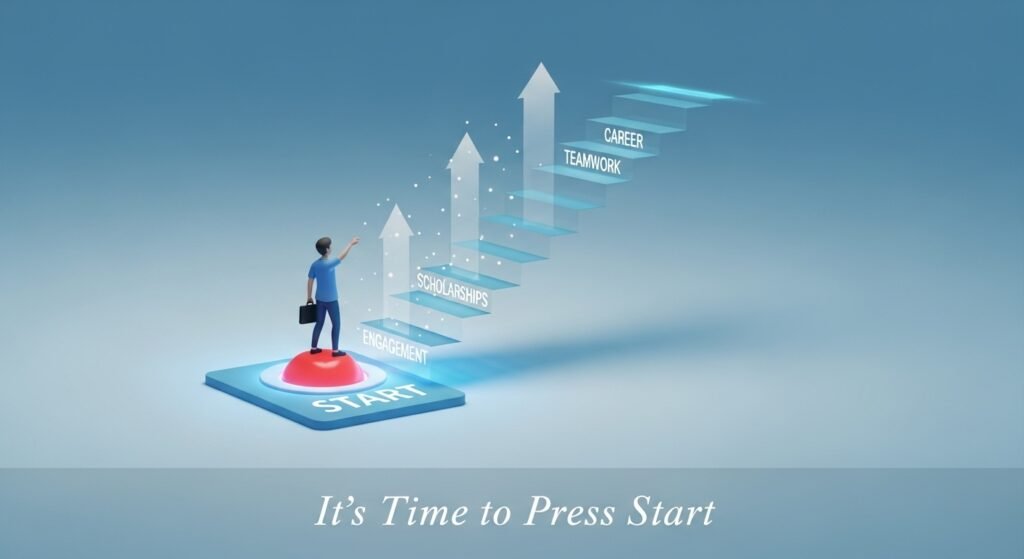
Conclusion: It’s Time to Press Start on Educational Esports
For too long, we have tried to fit all students into a single, standardized educational box. Esports shatters that box. It offers a dynamic, engaging, and student-driven ecosystem where a diverse range of talents can shine. It is a powerful engine for Personalized Learning, teaching not just in-game skills, but the critical “soft skills” of the future: collaboration, communication, critical thinking, and resilience.
By embracing scholastic esports, schools have a unique opportunity to engage a demographic of students who may feel disconnected from traditional activities. They can show that learning doesn’t have to be a passive activity, but can be an exciting, collaborative, and deeply rewarding adventure. It’s time to recognise esports for what it is: not a distraction from education, but a powerful new frontier for it.
Does your school have an esports program? What skills have you seen students develop? Share your experiences in the comments below!
Applied Scientific Thinking: A Practical Framework for Real-World Problem-Solving

